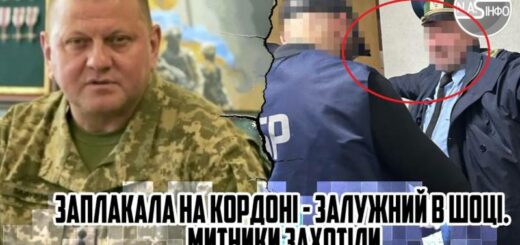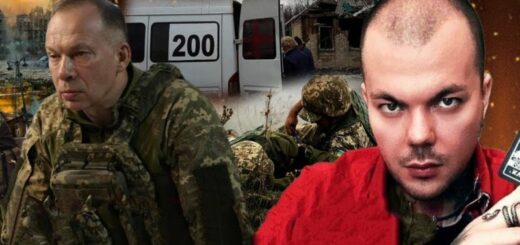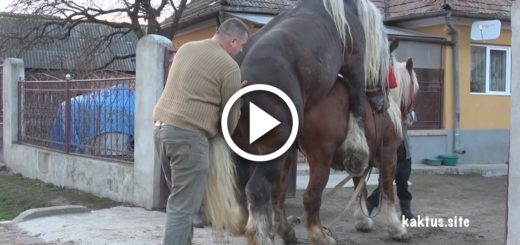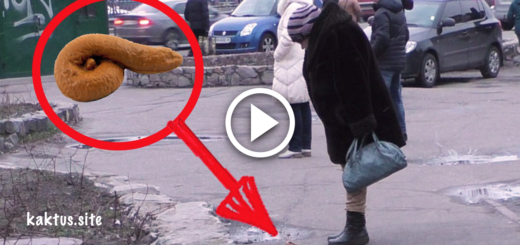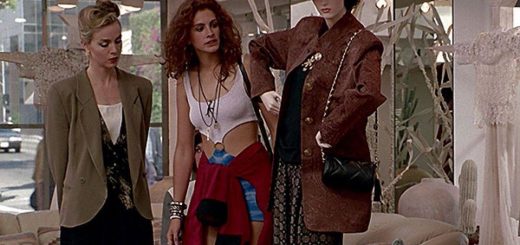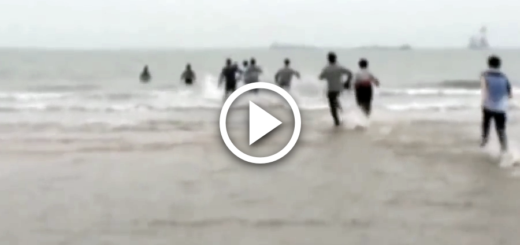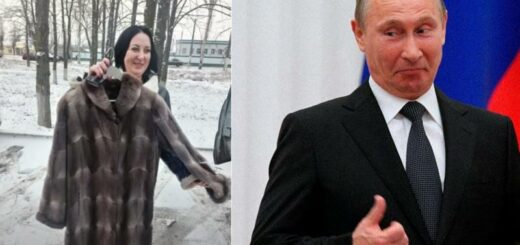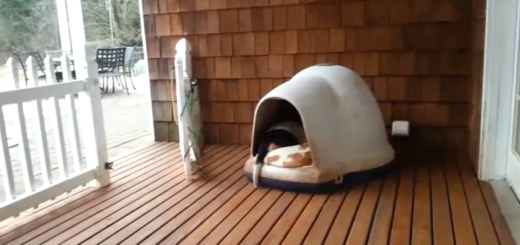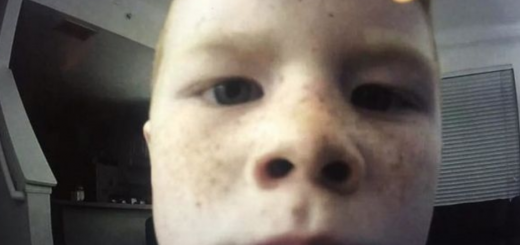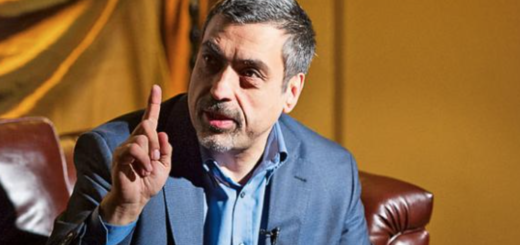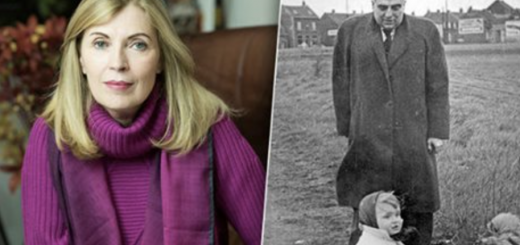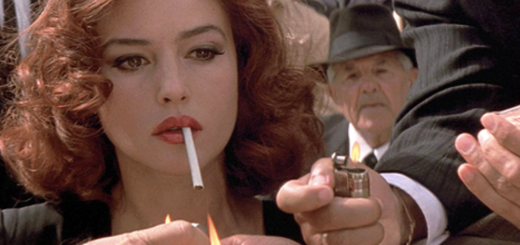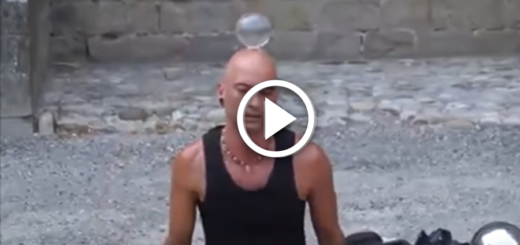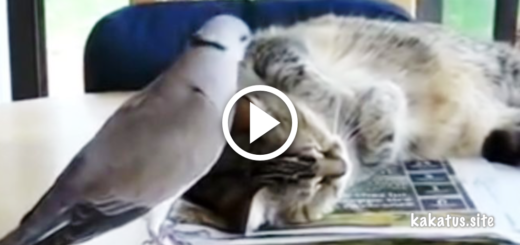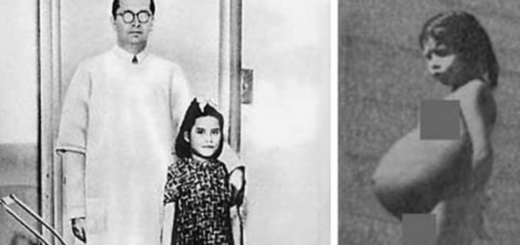The advice was sensible. Whatever emotional turmoil Zora was experiencing, she was still a 12-year-old in a foreign country with limited resources. The arrangements made for her, whether by Harrington or the mysterious law firm, represented her safest path forward.
After landing, as they waited in the queue for immigration, Dorothea wrote her London phone number on a slip of paper. I’ll be staying with my son for the next month, she said, pressing the paper into Zora’s hand. If you need anything, advice, a friendly ear, a place to escape to call me, day or night.
Zora tucked the paper carefully into her wallet, unexpectedly moved by the kindness of this woman who had been a stranger just hours ago. Thank you for everything. You take care of yourself, Zora Williams, Dorothea embraced her briefly.
And remember, no matter what you discover about your past, it doesn’t define your future. That part of the story belongs to you alone. With those parting words, they separated at immigration, Zora to the non-EU citizens line, Dorothea to join her son who waited beyond the barriers.
Alone again, Zora felt the full weight of her situation descend upon her. She was thousands of miles from home, carrying secrets and questions that seemed too heavy for her 12-year-old shoulders. Yet there was no turning back now.
Whatever awaited her in London, she would face it. After clearing immigration and collecting her small suitcase, Zora entered the arrivals hall, scanning the crowd for someone who might be looking for her. Among the drivers holding signs with passengers’ names, she spotted one that read simply, Z Williams, Blackwell, Henderson, and Associates.
The driver was a middle-aged South Asian man with a neat mustache and kind eyes. Miss Williams, he inquired as she approached. I’m Raj, I’ll be taking you to your hotel.
Thank you, Zora said, suddenly aware of how exhausted she was after the tumultuous journey. As Raj led her to a sleek black car parked in the short-term lot, Zora wondered if he knew anything about her situation. Had he been hired by the law firm or by Harrington directly? Did he know why she was here, what secrets awaited her? His professional demeanor offered no clues.
The drive into central London provided a welcome distraction. Despite her fatigue and emotional turmoil, Zora couldn’t help but press her face to the window, taking in the sights of the ancient city illuminated against the night sky. The iconic Tower Bridge, the imposing silhouette of Parliament, the slowly rotating London Eye, landmarks she had only seen in books and movies now materialized before her eyes.
First visit to London, Raj asked, noticing her fascination in the rearview mirror. Yes, Zora replied, not volunteering more information. You’ve picked a good time.
June is lovely here, not too crowded with tourists yet, and the gardens are in full bloom. The casual conversation was comforting in its normality, a brief respite from the extraordinary circumstances that had brought her here. Zora found herself responding to Raj’s gentle questions about her flight, eventful, she admitted without elaborating, and her plans in London uncertain, which wasn’t a lie.
The car eventually pulled up to a stately building in Mayfair, its facade illuminated by subtle lighting that highlighted its Georgian architecture. The Claridge, Raj announced, one of London’s finest hotels. Zora stared at the ornate entrance, where uniformed doormen assisted guests from expensive vehicles.
There must be some mistake, she said. I can’t be staying here. Raj smiled kindly.
No mistake, Miss Williams. Your accommodation has been arranged by Mr. Henderson personally. Everything is taken care of.
Mr. Henderson, one of the named partners at the law firm, presumably, or was this another of Harrington’s arrangements, made through his lawyers? Either way, it was clear that whoever had summoned her to London wanted her to be comfortable. With Raj’s assistance, Zora was checked into the hotel by a receptionist who showed no surprise at a 12-year-old guest arriving alone late at night. Mr. Henderson left this for you, the woman said, handing over a sealed envelope along with a key card.
And he asked me to inform you that Miss Powell will meet you in the lobby at 9, 30 tomorrow morning. The envelope contained a brief note on heavy card stock, embossed with the law firm’s letterhead. Miss Williams asterisk, welcome to London.
I trust your journey was uneventful. Miss Powell, one of our junior associates, will escort you to our offices tomorrow morning for our scheduled appointment. In the meantime, please avail yourself of the hotel’s amenities.
Room service is available 24 hours and has been instructed to accommodate any reasonable requests. With regards, Edward Henderson, senior partner, Blackwell Henderson and associates, there was no mention of Richard Harrington, no acknowledgment of the dramatic events that had unfolded during her uneventful journey. Either Henderson was unaware of what had happened, or he was maintaining a professional distance from the personal aspects of the situation.
A bellhop escorted Zora to her room on the fourth floor, not a standard room she realized as the door opened, but a suite larger than the entire first floor of her home in Baltimore. A sitting area with elegant furnishings opened onto a bedroom with a four poster bed draped in luxurious linens. Fresh flowers stood on a side table next to a basket of fruit and chocolates.
Floor to ceiling windows offered a view of a quiet Mayfair street. Will there be anything else, Miss Williams? The bellhop asked after depositing her suitcase in the bedroom. No, thank you, Zora replied, still overwhelmed by the opulence of her surroundings.
Once alone, she sank onto a velvet sofa, the events of the past 24 hours crashing over her like a wave. The mysterious letter, the flight, Harrington and the photo, the medical emergency and turbulence, the diversion to gander, the revelation about her parentage, the key burning a hole in her pocket. It was too much to process, especially in this strange, luxurious environment so removed from her normal life.
Her stomach growled, reminding her that she hadn’t eaten properly since the brief meal on the plane hours ago. The note had mentioned room service. Despite her discomfort with the extravagance, her practical nature asserted itself.
She was hungry and food had been offered. After ordering a simple meal of soup and a sandwich, the least expensive items she could find on the extensive menu, Zora took a shower in the marble bathroom with its rainfall showerhead and array of expensive toiletries. The hot water washed away the physical grime of travel, but could do nothing for the emotional turbulence within her.
Wrapped in a plush hotel robe, she sat on the edge of the bed and called the one person who might provide some anchor to reality in this surreal situation. Hello, grandma-me’s voice, slightly weakened by her treatments but still carrying that core of strength that had been Zora’s foundation, came through the phone. Grandma, it’s me, Zora said, fighting to keep her voice steady.
Zora thanked the Lord, I’ve been worried sick. The airline called saying your flight was diverted because of weather and a medical emergency. Are you in London now? Are you safe? I’m fine, Zora assured her.
I’m at the hotel, it’s really fancy. HMPH, grandma-me snorted. Trying to impress us, I suppose, don’t let it go to your head.
The familiar skepticism made Zora smile despite everything. I won’t. So what happened on that flight? They wouldn’t tell me much, just that there was turbulence and someone got sick.
Zora hesitated. Should she confront her grandmother now over the phone about what Harrington had revealed? Ask about July 17, 1992, demand to know if James Williams was really her father. Zora, you still there? Yes, she said, making a split second decision.
It was scary for a while, bad turbulence. A man in first class had some kind of heart problem. They had to land in Canada to get him to a hospital.
Lord have mercy, was he all right? I think so, they stabilized him. Zora took a deep breath. Grandma, do you remember a man named Richard Harrington? The silence that followed was so profound that Zora thought the connection might have been lost.
Then, so quietly, she almost missed it. Her grandmother said, where did you hear that name? The response, not a denial, not confusion, but a question that confirmed recognition, sent Zora’s heart racing. He was on my flight, she said, her voice barely above a whisper.
He’s the one who got sick. Another long silence. When grandmommy spoke again, her voice had changed, hardened somehow.
What did he say to you? The direct question deserved a direct answer. He said he’s my biological father. A sharp intake of breath, then a low, Jesus.
Is it true, Zora demanded, anger suddenly flaring. Is Richard Harrington my real father? Was everything you and mom told me about dad, about James, a lie? Not a lie, grandmommy said firmly. Never a lie, James Williams was your father in every way that matters.
He loved you from the moment he knew you existed. He raised you as his own for four years until that drunk driver took him from us. He is your father, Zora.
But biologically, biology isn’t everything, her grandmother cut in. Family is more than blood, it’s love, commitment, choice. James chose you, remember that no matter what else you learn.
Zora absorbed this, trying to reconcile the truth she’d always known with the new reality emerging. Why didn’t anyone ever tell me? I had a right to know. You’re 12 years old, child.
There are many things you have yet to learn about the world, about adults and the complicated messes they make of their lives. Grandmommy sighed heavily. Your mother and I decided, and James agreed, that it would be simpler, safer for you to grow up without that burden.
Safer from what? From prejudice, from pain, from being caught between worlds that don’t always mix well, another deep sigh. It wasn’t just about protecting you, though that was part of it. It was about protecting your mother, too, and the life she was trying to build.
Zora thought of the Harrington she had observed on the plane, wealthy, entitled, cold. Then of the vulnerable man on the stretcher, desperate to speak to her. Both versions seemed real, yet irreconcilable.
What happened between them, between mom and Harrington? That’s not my story to tell, child, not all of it. Some parts belong to your mother alone. But she’s gone, Zora said, unable to keep the bitterness from her voice.
She left us. How am I supposed to get answers from someone who abandoned me? The words hung in the air, raw and painful. Grandmommy didn’t immediately respond, and when she did, her voice was gentle but firm.
Your mother didn’t abandon you, Zora. She left you with me because she couldn’t take care of you anymore. She was sick, not in her body, but in her mind.
The kind of sick that makes a person not trust their own thoughts, that makes them see danger where there isn’t any. She left to protect you from what she was becoming. This was more than grandmommy had ever shared about her mother’s disappearance.
Always before, when Zora had asked, the answers had been vague. She had troubles. Or she needed to find herself, or sometimes adults make choices that children can’t understand.
What kind of sick, Zora pressed, hungry for any information about the mother who had vanished from her life. Depression at first, then paranoia, delusions. She started to believe people were watching her, following her, plotting against her and you.
Some days were better than others. She’d seem fine for weeks, then spiral down again. The doctors called it many things over the years, postpartum psychosis that never fully resolved, schizophrenia, bipolar disorder with psychotic features.
The labels changed, but the suffering was constant. Zora thought of her bright, beautiful mother as she remembered her, reading stories in funny voices, dancing in the kitchen to Motown classics, helping with homework at the kitchen table. The image didn’t align with what her grandmother was describing.
I don’t remember her being sick, she said uncertainly. She worked hard to hide it from you, and the worst of it came later after James died. His death broke something in her that never fully healed.
A knock at the door interrupted the conversation. Room service, called a voice from the hallway. Grandma, I have to go, food’s here.
Zora, listen to me, Grandmommy said urgently. Whatever Harrington tells you, whatever you learn in London, remember this. Your mother loved you fiercely, so did James.
So do I, nothing can change that. Nothing. I know, Zora said, though in truth, she felt uncertain about everything now.
Call me tomorrow after your meeting, and be careful, child. Powerful men like Harrington, they live by different rules than the rest of us. After saying goodbye, Zora let in the room service attendant, who set up her meal on a small table by the window.
She ate mechanically, barely tasting the food, her mind too full of new revelations and lingering questions. When she’d finished eating, she took the key Harrington had given her from her pocket and studied it in the lamplight. Small, brass, unremarkable, yet it supposedly opened a box containing a letter from her mother, written before she disappeared.
A letter that might explain everything, according to Harrington. But could she trust him? This man who claimed to be her biological father, who had apparently monitored her life from a distance for years. Who had orchestrated this mysterious journey to London.
Was he truly trying to give her answers, or was there some other agenda at work? As Zora crawled into the enormous bed, setting the alarm on the bedside clock for 8, 00 AM, she felt suspended between her past and future. Tomorrow she would meet with the lawyers, possibly open the safe deposit box, and begin to unravel the truth. But tonight, in this luxurious room so far from home, she was still just a 12-year-old girl trying to make sense of a world that had suddenly grown infinitely more complex.
She fell asleep clutching her father’s, James’s, copy of The Secret Garden. The photo of her parents tucked safely between its pages. The key to her mother’s letter beneath her pillow.
In her dreams, she was flying through turbulent skies, searching for solid ground that kept shifting beneath her feet. The insistent beeping of the alarm pulled Zora from a deep, dreamless sleep. For a disorienting moment, she couldn’t remember where she was.
The plush bedding, the elegant furnishings, the soft natural light filtering through heavy curtains were all so different from her modest bedroom in Baltimore. Then the events of the previous day came rushing back. The flight, Harrington’s collapse, his revelation, the diverted landing, the phone call with her grandmother.
She was in London, about to meet with lawyers who might have answers about her past, her parentage, her identity. Zora showered and dressed carefully in the clothes she’d packed for this meeting. A simple navy blue dress that had been a splurge at Target, purchased specifically for this trip.
And her only pair of dress shoes, slightly scuffed at the toes but polished to a respectable shine. She pulled her hair back into neat braids, secured with blue elastics that matched her dress. Looking in the mirror, she was struck by how young she appeared, how vulnerable.
Would these sophisticated London lawyers take her seriously? Would they tell her the truth, or would they see only a child to be managed? After a quick breakfast from room service, toast and fruit, the simplest options on the menu, Zora gathered her few important possessions. The photo, the key, her father’s book, and the letter that had started this journey. She tucked them into her backpack alongside her passport and wallet.
At precisely 9.25, she took the elevator down to the lobby, determined to be punctual for the meeting. The hotel was coming to life around her, business travelers checking out, tourists planning their day’s adventures, staff moving efficiently through their morning routines. Zora found a seat in a quiet corner of the lobby, her backpack clutched protectively on her lap and waited.
At 9.30 on the dot, a young woman in a tailored gray suit entered the lobby, her gaze sweeping the space with purpose. She was perhaps in her late 20s, with copper red hair pulled back in a sleek ponytail, and a tablet computer tucked under one arm. After a moment, her eyes landed on Zora, and she approached with a professional smile.
Miss Williams, I’m Lydia Powell from Blackwell Henderson and Associates. She extended her hand. Zora stood and shook it, conscious of how small her hand felt in the woman’s firm grip.
Nice to meet you. I hope you found the accommodation satisfactory, Ms. Powell said, her crisp British accent making the routine question sound somehow more formal. Yes, thank you, it’s very nice.
Excellent, our offices are just a short walk from here if you don’t mind. It’s a lovely morning for it. As they exited the hotel into the June sunshine, Zora found herself studying Ms. Powell, searching for clues about what the woman might know.
Was she aware of the circumstances surrounding this meeting? Did she know about Harrington, about the revelations on the plane? I understand there was some excitement on your flight yesterday, Ms. Powell said, as they waited to cross a busy street, answering Zora’s unspoken question. Mr. Harrington called from the hospital in Gander to inform us. You know Mr. Harrington, Zora asked cautiously.
He’s one of the firm’s oldest and most valued clients, Ms. Powell replied. We handle many of his personal and business affairs. Including me? The question came out more bluntly than Zora had intended.
Ms. Powell’s professional demeanor slipped slightly, revealing a flash of genuine empathy. This is an unusual situation for everyone involved, Ms. Williams. I won’t pretend otherwise, but my role today is simply to facilitate your meeting with Mr. Henderson, who will explain everything in detail.
They turned onto a tree-lined street of imposing buildings, each with a polished brass plaque beside its entrance, identifying law firms, investment companies, and private banks. Ms. Powell stopped before one of these buildings, its facade of Portland stone gleaming in the morning light. Here we are, she announced.
Blackwell, Henderson, and Associates has occupied this building since 1975. The interior was exactly what Zora would have expected of a prestigious London law firm, wood-paneled walls, thick carpets that muffled their footsteps, oil paintings of stern-looking men in judicial robes. A receptionist greeted Ms. Powell by name and directed them to a lift that carried them silently to the third floor.
They emerged into a corridor lined with doors, each bearing a nameplate. Ms. Powell led Zora to the end of the hall, where double doors opened into a spacious conference room. A large oval table dominated the space, surrounded by leather chairs.
Floor-to-ceiling windows offered a view of a small, immaculately maintained garden courtyard below. Please make yourself comfortable, Ms. Powell gestured to the chairs. Mr. Henderson will join us shortly.
Would you like some water or perhaps tea while you wait? Water, please, Zora said, suddenly aware of how dry her mouth had become. Left alone after Ms. Powell departed to fetch the water, Zora approached the windows, gazing down at the garden with its geometrically precise flower beds and central fountain. The scene was peaceful, at odds with the tumult of her thoughts.
It was designed in 1788, a deep voice said from the doorway. The garden, that is, one of the few in Mayfair to survive both the blitz and the development boom of the 1960s. Zora turned to find a tall, distinguished man in his 60s observing her.
His silver hair was impeccably styled, his navy suit clearly expensive but understated. He carried a leather portfolio and had the confident bearing of someone accustomed to authority. Ms. Williams, he said, crossing the room to offer his hand.
I’m Edward Henderson, thank you for making this journey under such unusual circumstances. His grip was firm but not overwhelming, his manner courteous but not condescending. Zora found herself automatically standing a little straighter, responding to his dignified presence.
Please sit down, Henderson gestured to the table. Ms. Powell will join us momentarily with refreshments, and then we can begin. As if on cue, Ms. Powell returned with a tray bearing a crystal pitcher of water, glasses, and a tea service.
She set these on the table and took a seat slightly apart from them, opening her tablet as if preparing to take notes. Henderson settled across from Zora, placing his portfolio on the table before him. Before we proceed, Ms. Williams, I must address the events that occurred during your flight yesterday.
Mr. Harrington contacted me from the hospital in Gander to inform me of what transpired between you. I understand he shared certain information with you, information that ideally would have been disclosed in a more controlled environment with proper preparation and support. His tone carried no judgment, just a factual assessment of the situation.
Zora appreciated the directness. He told me he’s my biological father, she said, matching his straightforwardness. Is that true? Henderson opened his portfolio and removed several documents.
Yes, it is true. I have here the results of DNA testing conducted with your mother’s consent shortly after your birth. The testing confirms with 99.997% certainty that Richard Harrington is your biological father.
He slid one of the documents across the table, a clinical report filled with scientific terminology and statistical analyses that Zora couldn’t fully comprehend, but whose conclusion was unambiguous. My mother knew she had this test done, Zora asked, struggling to reconcile this with what her grandmother had told her. Yes, Eliza was pragmatic about certain matters.
She wanted scientific confirmation, both for her own peace of mind and as a matter of record, should it ever become necessary to establish paternity. But she married James Williams. She let everyone, including me, believe he was my father.
Henderson nodded, his expression somber. That was her choice, made with James’s full knowledge and cooperation. A choice that Richard, after initial objections, came to accept as being in your best interest at that time.
At that time, Zora repeated, catching the qualification. But not anymore, is that why I’m here? You’re here because circumstances have changed, Henderson confirmed. Your grandmother’s illness, your mother’s continued absence, and Richard’s own.
Evolution in thinking have created a situation where all parties involved believe you deserve to know the truth and to have certain options available to you. What kind of options? Henderson removed another document from his portfolio. Richard has established a trust in your name.
This trust provides for your education through the university level, housing expenses, healthcare, and a substantial sum to be made available to you upon reaching the age of 25. The trust is irrevocable and will be administered by this firm regardless of any personal relationship you may or may not choose to have with Richard going forward. Zora stared at the document, a legal instrument bristling with clauses and conditions.
It’s language dense and formal. The figures mentioned made her breath catch. Even to her inexperienced eye, it was clear that the trust represented wealth beyond anything she had ever imagined possessing.
Why now, she asked, pushing the document back toward Henderson. Why not years ago or years from now? Why when grandma me is sick? Henderson’s expression softened slightly. Your grandmother’s prognosis, while not immediately dire, has raised questions about guardianship should her condition worsen.
Without your mother’s presence, and with no other close relatives identified, there was concern about what would happen to you in such circumstances. The implication struck Zora with chilling clarity. Foster care, she said quietly.
A possibility that Richard was unwilling to accept, Henderson confirmed. Hence the acceleration of this disclosure, which might otherwise have waited until you were older. Zora’s mind raced with the implications.
Was Harrington planning to claim her if grandmommy couldn’t care for her anymore? Take her away from Baltimore, from everything familiar, to live with a stranger who happened to share her DNA. I want to see my mother’s letter, she said suddenly, remembering the key still in her pocket. Harrington said there’s a safety deposit box with a letter from her.
Henderson exchanged a glance with Ms. Powell before nodding. Yes, there is such a letter. Eliza deposited it with us before her departure, with instructions that it be provided to you if, and when the truth of your parentage was disclosed.
But Harrington gave me a key, Zora insisted, removing it from her pocket. He said it opens a box at Barclays Bank. Ah, Henderson’s expression cleared.
That would be the key to Richard’s personal box, which contains items he has collected for you over the years. Mementos, photographs, records of your achievements that came to his attention. Your mother’s letter, however, is here in our possession.
We can provide it to you now if you wish. The revelation that Harrington had been maintaining a collection of items related to her life, a shrine of sorts to the daughter he had never publicly claimed, sent an uneasy shiver through Zora. It felt intrusive, even if well-intentioned.
Yes, she said firmly, I want to read it now. Henderson nodded to Ms. Powell, who rose and left the room. While they waited for her return, Henderson continued outlining the legal aspects of the situation.
Regardless of what you decide after reading your mother’s letter and considering all aspects of this situation, the trust will remain in place. You are under no obligation to establish or maintain a relationship with Richard, nor are there any conditions attached to the financial provisions he has made for you. What does he want from me? Zora asked bluntly.
Henderson considered the question carefully before answering. Speaking not as his lawyer, but as someone who has known Richard for over 30 years, I believe what he wants is simply the opportunity to know you, to be part of your life in whatever capacity you might allow. He has watched from a distance as you’ve grown, adhering to the boundaries established when you were born.
Now, he hopes those boundaries might be redrawn. Before Zora could respond, Ms. Powell returned carrying a sealed envelope. She placed it on the table before Zora and resumed her seat.
This was left in our care by Eliza Williams in September of 2000, shortly before her departure, Henderson explained. It has remained sealed since that time, awaiting this moment. The envelope was thick, made of heavy cream colored paper, with Zora’s name written on the front in handwriting she recognized immediately.
The same script that had signed countless permission slips, written notes in lunch boxes, penned birthday cards that Zora still kept in a special box under her bed. Her mother’s handwriting. With trembling fingers, Zora picked up the envelope.
It felt substantial, suggesting multiple pages inside. She looked at Henderson. May I have some privacy? Of course, he said, rising immediately.
Ms. Powell and I will wait outside, take as much time as you need. Once alone in the conference room, Zora stared at the envelope for several long moments. Here finally might be answers to the questions that had haunted her for years.
Why had her mother left? Where had she gone? And now, added to those longstanding questions, new ones burned. What had happened between her mother and Harrington? Why had she chosen to let James Williams claim Zora as his own? Taking a deep breath, Zora carefully opened the envelope, trying not to tear the paper that her mother had touched, had written upon, had sealed with whatever truths she felt compelled to preserve for her daughter. Inside were several pages of heavy stationery, covered front and back with the familiar handwriting.
Sometimes neat and measured, other places hurried and emotional, as if the words had poured out faster than they could be captured. Zora began to read. My dearest Zora Asterisk, if you are reading this letter, then you have learned the truth about your father, about Richard Harrington and James Williams, and the choice I made before you were born.
I don’t know how old you are now, or what circumstances have led to this revelation. I hope you are old enough to understand, to forgive, to see beyond the simple labels of right and wrong to the complex reality where most of life actually happens. I need to start by telling you about James, the man who chose to be your father in every way that matters.
James and I met at Howard University in 1989. We were both undergraduate students, he in engineering, I in computer science. We became friends first, study partners who shared ambitions and backgrounds.
Both of us were first generation college students from working class families, determined to create better futures through education. After graduation, we both found jobs at TechCorp, one of the emerging technology companies of that era. James was in product development, I worked in programming.
We remained friends, though not romantic, more like siblings supporting each other in a predominantly white male industry where we both felt like outsiders. It was at TechCorp that I met Richard Harrington. He was already successful, already wealthy, the founder and CEO of a rival company that was considering acquiring TechCorp.
He was 20 years my senior, married with grown children, established in ways I could only aspire to be. The relationship began professionally, Richard noticed my work, my ideas. He started finding reasons to include me in meetings, to seek my input on technical matters.
The attention was flattering. Here was this powerful man, this industry pioneer, treating me like my thoughts mattered, like I mattered. I won’t pretend I didn’t know he was married, I knew.
I also won’t pretend I was coerced or manipulated. I was young but not naive, ambitious but not calculating. What happened between us was mutual, gradual, and ultimately consuming, for me at least.
For six months, we carried on a secret relationship. Hotel rooms in cities where we both happened to be for business. Late night phone calls, encrypted emails, it was exciting, intoxicating.
I believed, or made myself believe, that his marriage was over in all but name, that eventually we would be together openly. Then I discovered I was pregnant with you. When I told Richard, his reaction was complex.
There was fear, fear of scandal, of damage to his reputation, his marriage, his company. There was also a strange sort of wonder. He held my hand as we looked at the first ultrasound images and whispered, that’s our child.
For a brief shining moment, I thought everything would work out. Richard talked about leaving his wife, about us becoming a family, but reality intruded quickly and brutally. His wife discovered our relationship.
His board of directors got wind of the potential scandal. The possible merger with TechCorp collapsed. My position there became untenable as rumors spread.
On July 17, 1992, I don’t know if that date means anything to you, but it changed everything for me. Richard came to my apartment ashen faced. His wife had threatened to take everything in a divorce if he left her for his pregnant black mistress.
Her words, not mine. His board had presented him with a stark choice, end the relationship or face removal as CEO of the company he had founded. He chose his company, his position, his existing family.
He offered financial support for you, suggested a discreet arrangement where he would provide for us from a distance. What he couldn’t offer was himself, his name, his presence in our lives. I was devastated, heartbroken, and suddenly very alone, four months pregnant, unemployed, I had resigned from TechCorp amid the rumors, and abandoned by the man I had believed would stand by me.
It was James who found me in this state. James, who had remained my friend despite disapproving of my relationship with Richard. James, who brought groceries when I couldn’t leave the apartment, who attended doctor’s appointments when I had no one else, who held me through nights of tears and rage.
It was James who, when I was seven months pregnant and showing no signs of recovery from my emotional collapse, made an extraordinary offer. He would marry me, give the baby his name, raise the child as his own. No strings attached, not even a real marriage if that wasn’t what I wanted.
Just his name, his protection, his support for a friend in need and an innocent child who deserved a father willing to be present. I accepted his offer, not out of romantic love, but out of desperate gratitude and practical necessity. We were married in a small civil ceremony two weeks later.
Richard, when informed, provided a settlement that he called a wedding gift, but that we all understood was effectively child support disguised as something else. And then on March 15, 1993, you were born, my beautiful, perfect daughter. The moment the nurse placed you in my arms, I knew I would do anything to protect you, including maintaining the fiction that James was your biological father.
For four years, we lived as a family. It wasn’t a conventional marriage. James and I shared a home, shared parenting duties, shared a deep friendship, but never shared a bed.
He dated occasionally. I remained emotionally unavailable, still healing from Richard’s abandonment. Yet in all the ways that truly mattered, we were a family.
James adored you. He was there for your first steps, your first words, your first day of preschool. He read to you every night, taught you to ride a tricycle, held you when you had nightmares.
He was your father, Zora, in every way that counts. When James died in that car accident, part of me died too. Not because I had fallen in love with him romantically.
Our relationship had never evolved in that direction. But because he was my best friend, my co-parent, my rock. And because I knew with terrible clarity that his death meant I could no longer maintain the protective bubble we had created around you.
Richard reached out after the funeral. He expressed genuine grief over James’ death. They had developed a strange, distant respect for each other over the years.
He also, tentatively, raised the possibility of playing a more active role in your life now that James was gone. I refused, perhaps out of lingering anger, perhaps out of fear of disrupting your life further after losing the only father you had known. Richard accepted my decision, but set up a trust fund for you, and made it clear that the door remained open should I ever change my mind.
The years after James’ death were difficult. I struggled with depression that gradually evolved into something more frightening. I began experiencing paranoia, hearing voices, developing elaborate delusions.
Some days were better than others. On good days, I could almost pretend everything was normal. On bad days, I was convinced that Richard was having us followed, that government agents were monitoring our communications, that unknown enemies were plotting to take you away from me.
I sought treatment, therapy, medication, even brief hospitalizations when things were at their worst. Your grandmother, me, was my lifeline during this time, caring for you when I couldn’t, maintaining a stable environment amid the chaos of my deteriorating mental health. By the time you were seven, it had become clear to me that my presence in your life was doing more harm than good.
My condition was worsening despite all treatment efforts. I was becoming unpredictable, sometimes frightening to you. I couldn’t bear the look in your eyes when I was in the grip of delusions, confusion, fear, the terrible burden of a child trying to understand a parent’s madness.
So I made the most painful decision of my life, to remove myself from the equation, to leave you with me, who could provide the stability and safety I no longer could, to disappear before I could do more damage to your developing sense of security and self. I didn’t abandon you, Zora. I left because I loved you too much to stay and inflict my brokenness upon you day after day.
Where am I now? I don’t know what me has told you or what you may have imagined. The truth is both simpler and more complex than most scenarios. After leaving Baltimore, I checked myself into a long term psychiatric facility in Arizona.
The dry climate, the distance from triggers associated with my past, the intensive treatment program all offered hope for stabilization, if not recovery. I have remained there voluntarily for these past years. My condition fluctuates, periods of lucidity interspersed with descents into psychosis.
During the good periods, I write letters to me, receive updates about you, treasure the photographs she sends. During the bad periods, I lose touch with reality entirely, sometimes for months at a time. I don’t know if I will ever be well enough to reenter your life.



